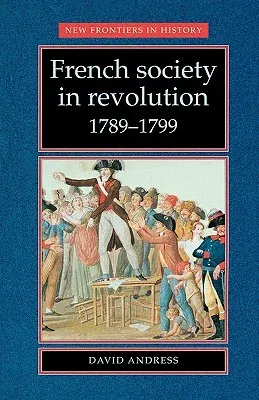David Andress
(Author)French Society in Revolution 1789-1799Paperback, 1 April 1999

Qty
1
Turbo
Ships in 2 - 3 days
Only 1 left
Free Delivery
Cash on Delivery
15 Days
Free Returns
Secure Checkout

Part of Series
New Frontiers
Part of Series
New Frontiers in History (Paperback)
Print Length
256 pages
Language
English
Publisher
Manchester University Press
Date Published
1 Apr 1999
ISBN-10
0719051916
ISBN-13
9780719051913
Description
Product Details
Author:
Book Format:
Paperback
Country of Origin:
US
Date Published:
1 April 1999
Dimensions:
21.62 x
13.92 x
2.06 cm
ISBN-10:
0719051916
ISBN-13:
9780719051913
Language:
English
Location:
Manchester
Pages:
256
Publisher:
Weight:
317.51 gm